Sumner Norman, chief neuroscientist at AE Studio, talks to Tami Freeman about the company’s work in brain–computer interfaces.


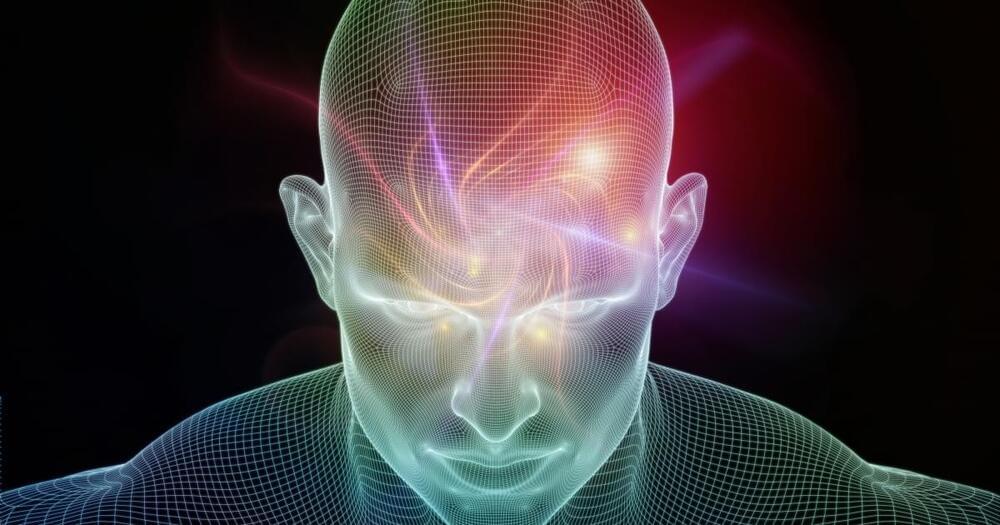
This lecture was recorded on February 3, 2003 as part of the Distinguished Science Lecture Series hosted by Michael Shermer and presented by The Skeptics Society in California (1992–2015).
Can there be freedom and free will in a deterministic world? Renowned philosopher and public intellectual, Dr. Dennett, drawing on evolutionary biology, cognitive neuroscience, economics and philosophy, demonstrates that free will exists in a deterministic world for humans only, and that this gives us morality, meaning, and moral culpability. Weaving a richly detailed narrative, Dennett explains in a series of strikingly original arguments that far from being an enemy of traditional explorations of freedom, morality, and meaning, the evolutionary perspective can be an indispensable ally. In Freedom Evolves, Dennett seeks to place ethics on the foundation it deserves: a realistic, naturalistic, potentially unified vision of our place in nature.
Dr. Daniel Dennett — Freedom Evolves: Free Will, Determinism, and Evolution
Watch some of the past lectures for free online.
https://www.skeptic.com/lectures/
SUPPORT THE SOCIETY
You play a vital part in our commitment to promote science and reason. If you enjoy watching the Distinguished Science Lecture Series, please show your support by making a donation, or by becoming a patron. Your ongoing patronage will help ensure that sound scientific viewpoints are heard around the world.
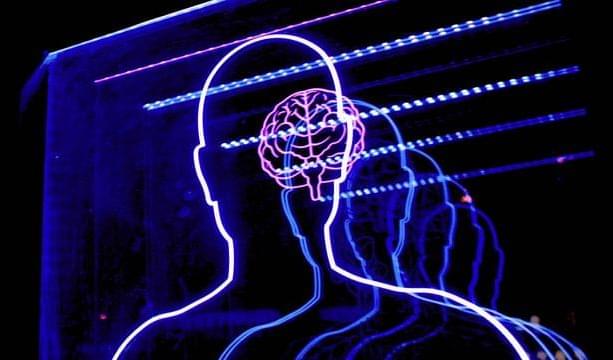
A new study has identified an association between receiving an influenza vaccine and a reduced risk of stroke. The research is published in the journal Neurology.
Risk factors for stroke
A stroke occurs when the blood supply to the brain is cut off, causing damage to neuronal cells that in turn affects physiological functions in the body. There are different types of strokes that can occur: ischemic – where a blockage prevents blood from reaching the brain, hemorrhagic – caused by a bleed in or around the brain and transient ischemic attacks (TIA) which are strokes that last for a short amount of time. It’s estimated that one in four people aged 25 and over will be afflicted by a stroke in their lifetime.


When Neuralink co-founder Max Hodak announced his enigmatic departure from the company earlier this year, it was unclear whether he quit due to disagreements with fellow co-founder Elon Musk or if he was fired for moving too slow on clinical trials.
Now, Futurism has learned, Hodak is working on what appears to be a well-funded new brain interface venture called Science Corp. According to an SEC filing from July, Hodak has already raised more than $47 million from 14 investors for the new company — not quite as much as Neuralink’s $363 million to date, but a rousing start that could signal growing competition in the nascent neurotech market.
Moreover, Hodak appears to be taking some talent from Neuralink with him. Alan Mardinly, Neuralink’s longtime director of biology, recently changed his LinkedIn account to say that he has been working at a “stealth startup” since July 2021 and left his position at Neuralink in August 2021 — and posted a link to Science Corp’s hiring page along with an exhortation to “join early,” strongly suggesting that he’s on board the venture.
Device projects holographic images into brain to activate dozens of neurons at once, simulating real patterns of activity that fool the brain into perceiving things that aren’t there.
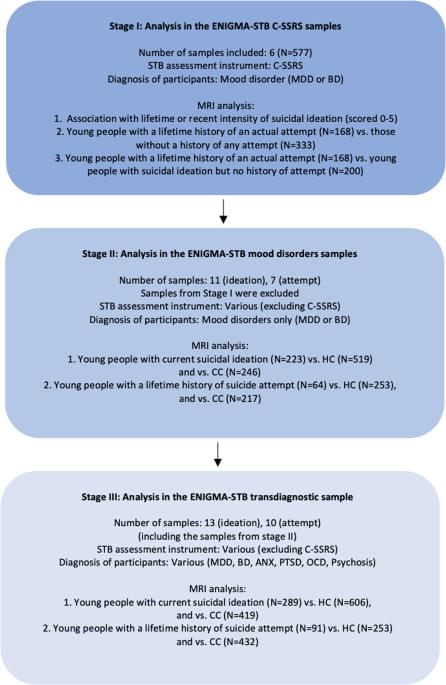
Suicide is the second leading cause of death for young people aged between 15 and 29 [1]. Suicidal thoughts and behaviors (STBs) typically emerge during adolescence [2]. It has been estimated that between 11 and 29% of adolescents report suicidal ideation (suicidal thoughts), and 2–10% of adolescents attempted suicide in the past year [3]. Unfortunately, the number of suicide attempts among children and adolescents has continued to increase sharply despite national and international prevention efforts [4].
To improve targeting of prevention and intervention efforts and thereby reduce the number of deaths by suicide in this age group, we must increase our understanding of the mechanisms underlying both suicidal thoughts and suicidal behaviors (including suicide attempts) in young people. Neuroimaging, including Magnetic Resonance Imaging (MRI), is a useful tool with which to identify biological risk markers for STBs in vivo and non-invasively. Many neuroimaging studies have been published examining the neural substrates of STBs in the past 20 years, but few have focused on STBs in youth (for a review, see [5]). Although several of these studies support lower regional brain volumes, particularly in ventral and dorsal prefrontal and also in temporal regions [6,7,8,9] in suicide attempters with mood disorders, negative findings have also been reported [10, 11].
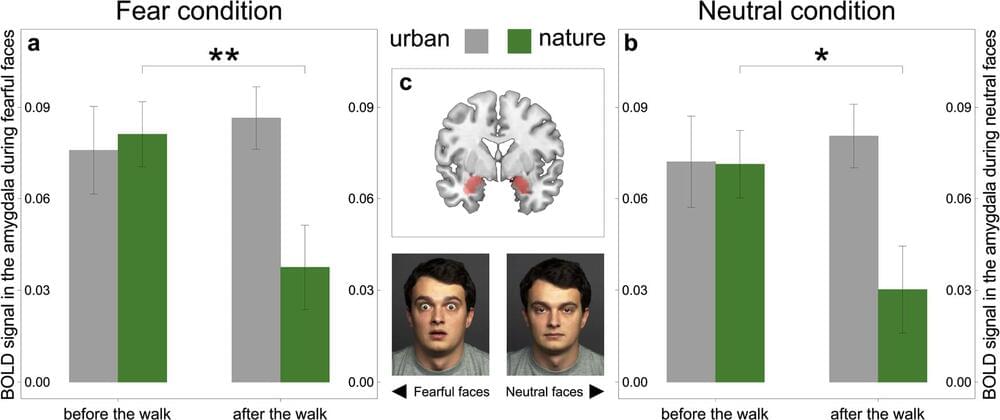
After a 60-minute walk in nature, activity in brain regions involved in stress processing decreases. This is the finding of a recent study by the Lise Meitner Group for Environmental Neuroscience at the Max Planck Institute for Human Development, published in Molecular Psychiatry.
Living in a city is a well-known risk factor for developing a mental disorder, while living close to nature is largely beneficial for mental health and the brain. A central brain region involved in stress processing, the amygdala, has been shown to be less activated during stress in people who live in rural areas, compared to those who live in cities, hinting at the potential benefits of nature. “But so far the hen-and-egg problem could not be disentangled, namely whether nature actually caused the effects in the brain or whether the particular individuals chose to live in rural or urban regions,” says Sonja Sudimac, predoctoral fellow in the Lise Meitner Group for Environmental Neuroscience and lead author of the study.
To achieve causal evidence, the researchers from the Lise Meitner Group for Environmental Neuroscience examined brain activity in regions involved in stress processing in 63 healthy volunteers before and after a one-hour walk in Grunewald forest or a shopping street with traffic in Berlin using functional magnetic resonance imaging (fMRI). The results of the study revealed that activity in the amygdala decreased after the walk in nature, suggesting that nature elicits beneficial effects on brain regions related to stress.
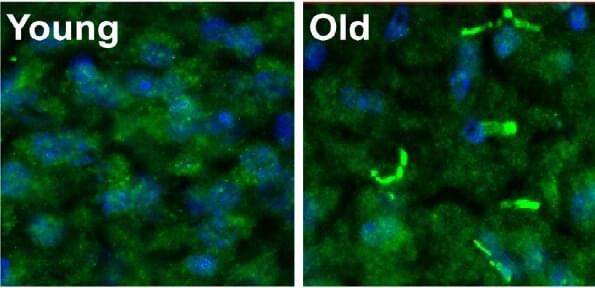
One of the most upsetting aspects of age-related memory decline is not being able to remember the face that accompanies the name of a person you just talked with hours earlier. While researchers don’t understand why this dysfunction occurs, a new study conducted at University of Maryland School of Medicine (UMSOM) has provided some important new clues. The study was published on September 8 in Aging Cell.
Using aging mice, researchers have identified a new mechanism in neurons that causes memories associated with these social interactions to decline with age. In addition, they were able to reverse this memory loss in the lab.
The researchers report that their findings identified a specific target in the brain that may one day be used to develop therapies that could prevent or reverse memory loss due to typical aging. Aging memory problems are distinct from those caused by diseases like Alzheimer’s or dementia. At this time, there are no medications that can prevent or reverse cognitive decline due to typical aging.